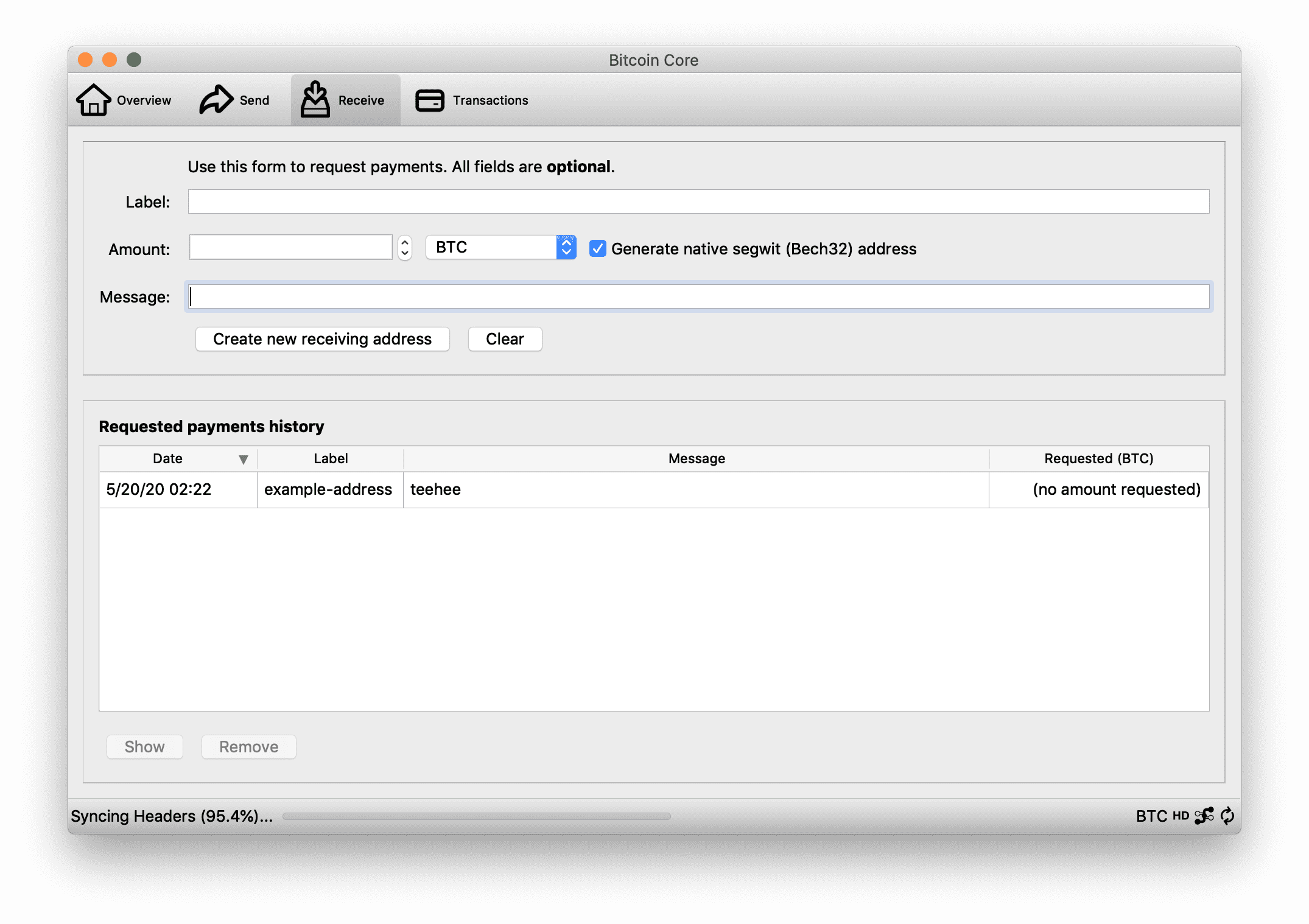
BITCOIN CORE OPEN OLD WALLET WINDOWS 7
Using the Linux kernel, macOS 10.15+, and Windows 7 and newer. Wallet versions of Bitcoin Core are generally supported.īitcoin Core is supported and extensively tested on operating systems Possible, but it might take some time if the data directory needs to be migrated. Upgrading directly from a version of Bitcoin Core that has reached its EOL is Installer (on Windows) or just copy over `/Applications/Bitcoin-Qt` (on Mac) Shut down (which might take a few minutes in some cases), then run the If you are running an older version, shut it down.
BITCOIN CORE OPEN OLD WALLET UPDATE
To receive security and update notifications, please subscribe to: Please report bugs using the issue tracker at GitHub: Improvements, as well as updated translations. This release includes new features, various bug fixes and performance Messages sorted by: īitcoin Core version 23.0 is now available from:.Previous message: Bitcoin Core 23.0 release candidate 5 available.Operator to be used and doesn't have any range checking.Bitcoin Core 23.0 released It's obviously fairly basic at the moment, it only allows the TwoBit(bitRef a1, bitRef b1): a(a1), b(b1) īitRef b1 = std::bitset::operator(2*index) īitRef b2 = std::bitset::operator(2*index + 1) Typedef typename std::bitset::reference bitRef Operator without it is somewhat difficult. Helper class - modifying the data using the , which is essentially an array of bits it then maps some supplied index to two bits in the The same idea would apply here - just rather than mapping some index to one bit, it would be mapped to two bits instead. I'm sure you can find plenty of open-source implementations online, one example is Java's BitSet (available here). (or really any other integral type), and to use bit-wise operations to get or set specific bits. The basic idea that probably all bit-set implementations use is to have an ) to get change notifications to drive processes.

Operator but you'll need a signal (not just a This should get you past your problem for now but if you expect to be doing a lot of serial- parallel conversions it might be worth your while designing a small set of templates (or more likely template-template classes). let process clear up memory am too lazy Sc_start(20.0, SC_SEC) //run it for 20 cycles and see what we get ModuleBit* bit_m //W x modules needing single bit inputįor(int i = 0 i bool_i(convert.bool_o) //reverse them to print 'normally' (not guaranteed)īitsw_m.uint_o(convert.uint_i) //connect output of sc_uint module to converter module ModuleBitsW bitsw_m("bitsw_m") //module with sc_uint output UintToBits convert("convert") //converts sc_uint signal to W x bool signals

create the sc_uint module, the bool modules and the converter module Sc_clock clock("clock", 1.0, SC_SEC) //randomly chosen one second period clock Sensitive read() + 1 //output current value + 1 SC_METHOD(proc) //proc just to change the output SC_METHOD(proc) //a proc just to print out the bit Sc_signal bool_o //output signal W x bool Typedef sc_uint UintType //type of sc_uint You could take this to the n'th degree with template template classes (Įtc) but this is just a simple solution that should get you working. Here is a quick but fully working example. What I think you may be looking for is the That is, one that takes anĪnd converts it to an array of W boolean signals (or vice versa). The simplest solution is to just use an intermediate module to convert the signals. , the channels themselves are of totally different types (for example You are trying to connect signals and ports (or interfaces and channels) together. Error: no match for call to ‘(full_adder) (sc_core::sc_signal_in_if >*, sc_core::sc_signal_in_if >*, sc_core::sc_signal&, sc_core::sc_signal_inout_if >*, sc_core::sc_signal&)’įull_adder *fa0_ptr, *fa1_ptr, *fa2_ptr, *fa3_ptr įa0_ptr = new full_adder("fa0") // constructor operator which allocates and initialize the memory.īut that is not really your issue.


 0 kommentar(er)
0 kommentar(er)
